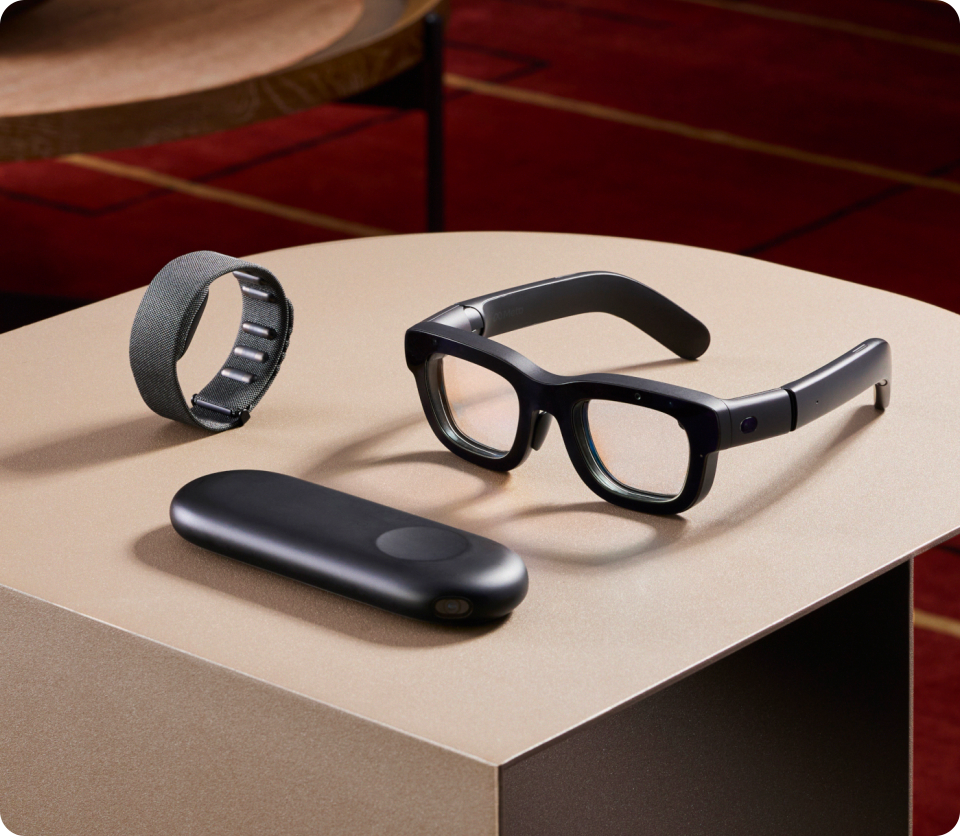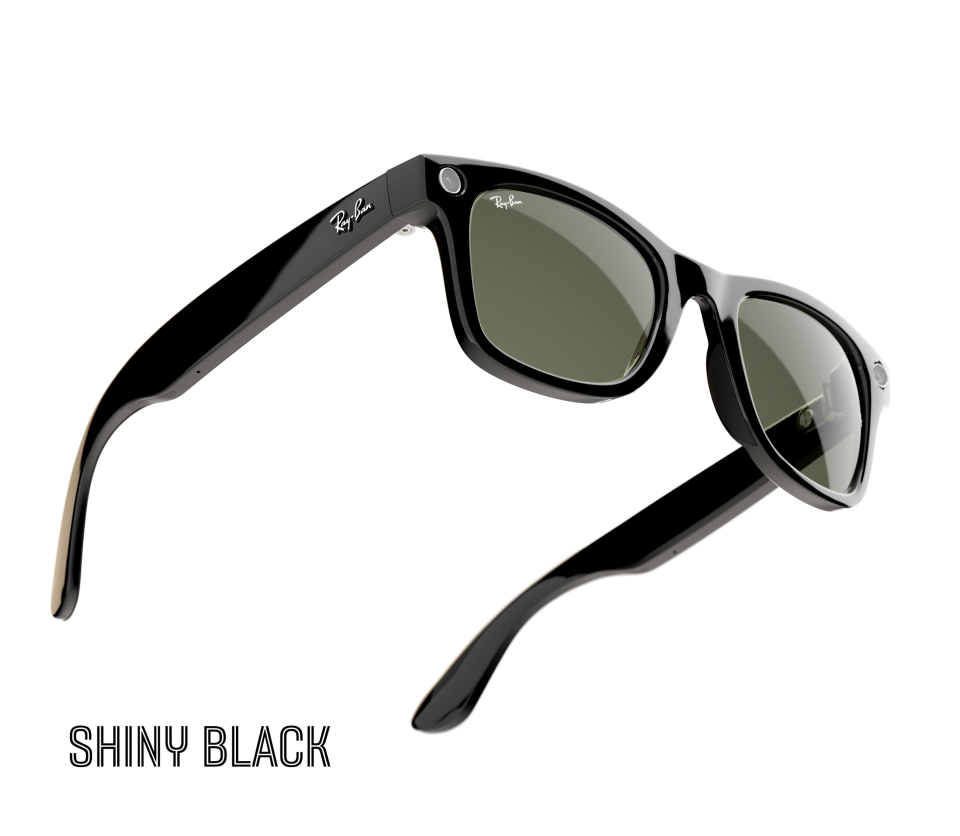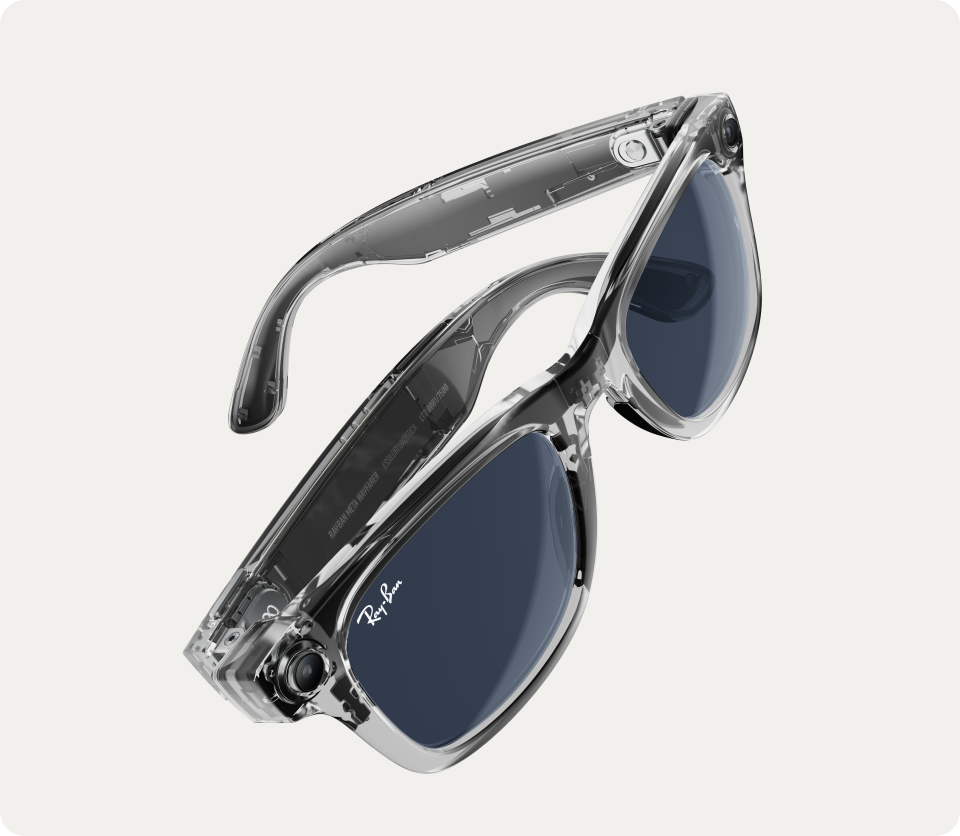Meta Unveils Orion AR Glasses, Quest 3S VR Headset

Meta Connect 2024: New announces include budget VR headset; Orion augmented reality glasses; and AI updates for Meta Glasses
Meta Platforms has unveiled new wearable devices at the Connect 2024 event, as well as AI updates for its existing Ray-Ban smart glasses, coupled with other AI announcements.
Perhaps the standout announcement at the Meta Connect 2024, was Meta’s augmented reality (AR) glasses called Orion (previously codenamed Project Nazare), which Meta claims to be the most advanced pair of AR glasses ever made.
The new wearable arrivals had been expected, after Meta earlier this week had revealed that celebrity voices would be made available from the likes of Judi Dench and John Cena for its chatbot assistant (Meta AI), along with other new AI features.

Orion AR glasses
Meta said that it had begun developing its AR glasses five years ago, as it doesn’t “think people should have to make the choice between a world of information at your fingertips and being present in the physical world around you.”
Unlike Apple’s Vision Pro and the Meta Quest 3 headsets, that utilise passthrough video capabilities, the Orion AR glasses seeks to squeeze the same tech into a wearable that more closely resembles a pair of prescription glasses.
Meta says the Orion AR glasses “combines the look and feel of a regular pair of glasses with the immersive capabilities of augmented reality – and it’s the result of breakthrough inventions in virtually every field of modern computing.”
The new wearable however is not available for consumers, as it is currently being tested with certain “Meta employees and select external audiences access to Orion.”
Meta believes that AR glasses are key to unlocking the next great leap in human-oriented computing, because “they enable digital experiences that are unconstrained by the limits of a smartphone screen. With large holographic displays, you can use the physical world as your canvas, placing 2D and 3D content and experiences anywhere you want.”
Meta also believes another key feature of AR glasses is that “seamlessly integrate contextual AI that can sense and understand the world around you in order to anticipate and proactively address your needs;” coupled with the fact that they are “lightweight and great for both indoor and outdoor use, and they let people see each other’s face, eyes and expressions.”

Image credit Meta
Meta claims that Orion is a feat of miniaturisation – as the components are packed down to a fraction of a millimetre.

Image credit Meta
Orion has the largest field of view in the smallest AR glasses form to date, said Meta. That field of view unlocks immersive use cases for Orion, from multitasking windows and big-screen entertainment to life-size holograms of people – all digital content that can seamlessly blend with the user’s view of the physical world thanks to transparent lenses.
Transparent lenses means the user can still see other people’s eyes and expressions.

Image credit Meta
Orion also offers an AI smart assistant, Meta AI, which understands what the user looking is at in the physical world. This allows for example to open a fridge and ask for a recipe based on what’s inside. Or the user can video call a friend while adjusting a digital family calendar as they wash the dishes.
Ray-Ban | Meta Glasses update
Meta had released its first smart glasses in September 2021, but now Meta has announced that this wearable is getting more partner integrations, coupled with new AI features.

Image credit Meta Platforms
Essentially, Meta has made it easier to have a conversation with Meta AI. The user can begin a conversation with “Hey Meta” to ask an initial question and then can ask follow-up questions without saying “Hey Meta” again.
The user no longer need to say “look and” to ask Meta AI questions about what they are looking at.
The Glasses will also remember where the user has parked their car, and the user can simply utilise their voice to set a reminder to text their mom in three hours when they land safely.
Meta AI can also record and send voice messages on WhatsApp and Messenger, hands-free, and Meta AI can also offer continuous real-time help if exploring or travelling, with the user able to ask it about landmarks.
Meta AI can also suggest meal plans when the user is walking down supermarket aisles. And soon the glasses will be able to translate speech in real time.

Image credit Meta
Meta also said it is partnering with Be My Eyes, a free app that connects blind and low-vision people with sighted volunteers so they can talk the user through what’s in front of them.
In addition, Meta is advancing its integrations with Spotify and Amazon Music, and adding new partnerships with Audible and iHeart. The user’s voice can therefore search, discover and play content on the go.
And for the style conscious, there is a new, limited edition set of transparent Wayfarer frames so the user can show off the tech inside them.

Budget headset
The third notable wearable announcement is a budget mixed reality headset called the Meta Quest 3S headset, which it says offers the same mixed reality capabilities and fast performance as Meta Quest 3, but at a lower price point.

Image credit Meta
Prices start at $299.99 (for the 128GB option), making it an ideal purchase those new to mixed reality and immersive experiences, or those seeking a low-cost upgrade from Quest and Quest 2.
Meta says it has rebuilt Meta Horizon OS for spatial computing, with better support for essential 2D apps like YouTube, Facebook and Instagram. It has also added better spatial audio and improved Passthrough’s contrast and colour, making it more realistic and immersive. The Quest headset can also be used in transit, thanks to a Travel Mode.
Quest 3S is compatible with Meta’s full library of thousands of apps and games, plus upcoming Quest 3 and 3S exclusives such as Batman: Arkham Shadow.
In addition to the new budget-friendly Meta Quest 3S headset, Meta is also dropping the price of the 512GB Meta Quest 3 from $649.99 to just $499.99.
However the older Quest 2 and Quest Pro headsets will be discontinued by the end of the year.